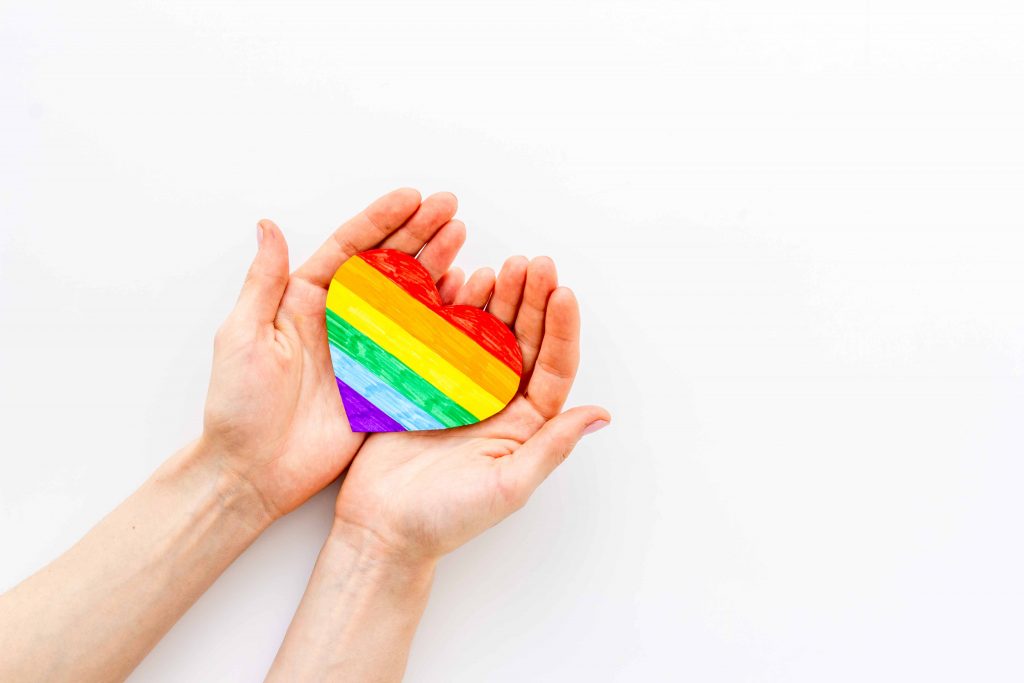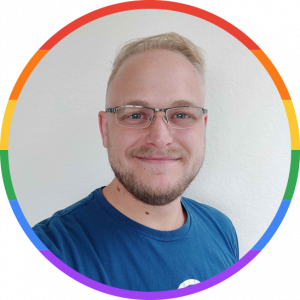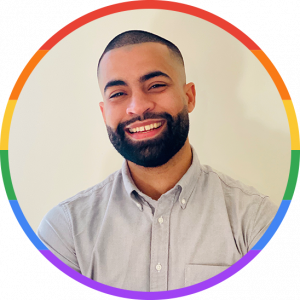June 2020 marks the 50th anniversary of annual LGBTQ+ Pride traditions. We took a moment to sit down with colleagues to reflect on Pride and discuss what it means to them.
Calvin Liu, Sustainability and Research Analyst, New York
What does Pride mean to you?
Despite growing up in NYC, I spent part of my childhood ashamed of who I was. Pride is a reminder of my growth and to celebrate the person I have become. Pride is also a time to remember the fight that my community has been through to achieve the rights that I have today and acknowledge the work that still needs to be done.
Which LGBTQ issues are particularly on your mind during Pride month, domestically and internationally?
Homelessness disproportionately affects LGBTQ+ youth, as their sexual orientation or gender identity and expression are more likely to cause family conflict. Homeless LGBTQ+ youth are more likely to experience mental health issues due to familial rejection. The religious affiliation of an emergency housing program may lead to denial of services to LGBTQ youth or may place them in undesirable situations such as conversion therapy.
What can people do to raise awareness and be better allies, not just during the month of Pride but year-round?
People need to do more than simply say that they support a movement – activism of that nature does not contribute to the cause. Not everyone has to support a movement physically or financially – you can raise awareness and be a better ally by educating yourself and driving difficult conversations with your peers and colleagues. Discomfort is inevitable in allyship, but remember that this discomfort is not a choice for many.
What are your experiences in the workplace as a member of the LGBTQ community?
In many states, there are no statewide protections for LGBTQ discrimination in the workplace. Whenever I interview for a position or start working somewhere, I have always been cautious and afraid that my sexual orientation may work against me and cause obstacles. As someone who recently joined the workforce, I thankfully have not experienced anything of such nature but will always be aware that I could.
What are your thoughts on queer representation in media?
Growing up, queer representation in media was quite limited and was overwhelmingly dominated by white LGBTQ+ characters and their experiences. Intersectionality creates important nuances in narratives and the proper representation of such is critical for molding people’s views of others, themselves, and the world around them. Being Asian and LGBTQ+, I rarely see media properly reflecting my narrative, which can diminish the validity of my experiences.
Mike Lloyd, Senior Software Engineer, Colorado
What does Pride mean to you?
Pride, to me, is the ability to be myself as a professional without the concern of repercussions.
Which LGBTQ issues are particularly on your mind during Pride month, domestically and internationally?
As a veteran, ensuring that veterans who are a part of the LGBTQ community are properly represented. A lot of veterans prefer not to announce or advertise their orientation for fear of acceptance within the veteran community.
What can people do to raise awareness and be better allies, not just during the month of Pride but year-round?
I think having role models within the respective communities are key, folks who are not afraid to be public with their orientation and can act as a guide for navigating the professional world as an LGBTQ community member.
What are your experiences in the workplace as a member of the LGBTQ community?
Generally, I’ve had no issues with my orientation being a problem in the workplace, but my experiences may not reflect the reality of others. I personally see my ability as a professional to be fundamentally separate from how my orientation affects my personal life.
What are your thoughts on queer representation in media?
I think so long as the queer community is not vilified or alienated, queer representation is varied across liberal and conservative media. I can’t really comment on the nuances of the representation as I’m not a huge media consumer (i.e. news), but from what others have shared with me, it’s getting better but does have a long way to go. From my limited media consumption (shows, movies, etc.), there is a much better representation than there was 5 years ago. I do think it’s important to call out that while the representation is much more accurate, the amount of media available which does reflect the LGBTQ community is on par with the ratio of LGBTQ communities to non-LGBTQ communities – i.e., it’s my understanding that LGBTQ folk represent about 3-7% of the population worldwide, so there’s about 3-7% representation of LGBTQ communities in media from what I have seen. I would expect that ratio to stay stable over time.
Jeremy Cosme, HR Manager, New York
What does Pride mean to you?
Pride means being unapologetically me, always. Pride month, specifically, is a reminder of all the courageous activists and LGBTQ+ figures who fought for the rights of so many. It is an opportunity to celebrate the progress we’ve made as a community and think about future progress to come.
Which LGBTQ issues are particularly on your mind during Pride month, domestically and internationally?
The rights, justice, and respect for the transgender community. It deeply saddens me knowing that the number of attacks and murders this community faces continues to rise at an alarming rate. No human being should be persecuted for their gender identity or expression. We still have a way to go in ensuring this community has the appropriate support and advocacy and that violence against the trans community ends both domestically as well as internationally.
What can people do to raise awareness and be better allies, not just during the month of Pride but year-round?
Fundamentally, I think it’s important for allies to expand their education and understanding of LGBTQ+ issues and experiences. Allies can also encourage dialogue and awareness about the holistic LGBTQ+ community, ask questions if you are unsure and most importantly be respectful and compassionate.
What are your experiences in the workplace as a member of the LGBTQ community?
I always say that me being a part of the LGBTQ+ community is only a portion of my identity. It is important for me to always be the gay sarcastic Latino from Jersey wherever I am. I’ve been extremely fortunate to work at organizations and with teams with a strong emphasis on inclusivity. I’ve always felt comfortable sharing my identity with my leaders and peers. As a human resources practitioner, my experiences and identity have contributed to my desire to cultivate an inclusive space for all employees. I want all employees to feel comfortable with who they are and always bring their most authentic selves to work every day – I love being able to impact an organization in this way.
What are your thoughts on queer representation in media?
Growing up for me I noticed a lot more focus or emphasis on the cisgender gay male experience. Over time, I am seeing more representation of LGBTQ+ people from underrepresented groups. Storytelling is such a powerful way to give a voice to these underrepresented groups. Shows like “Pose” centered around the transgender community have pushed the status quo on traditional representation in media. These depictions of real-life experiences are key to increased understanding and support for the community.




